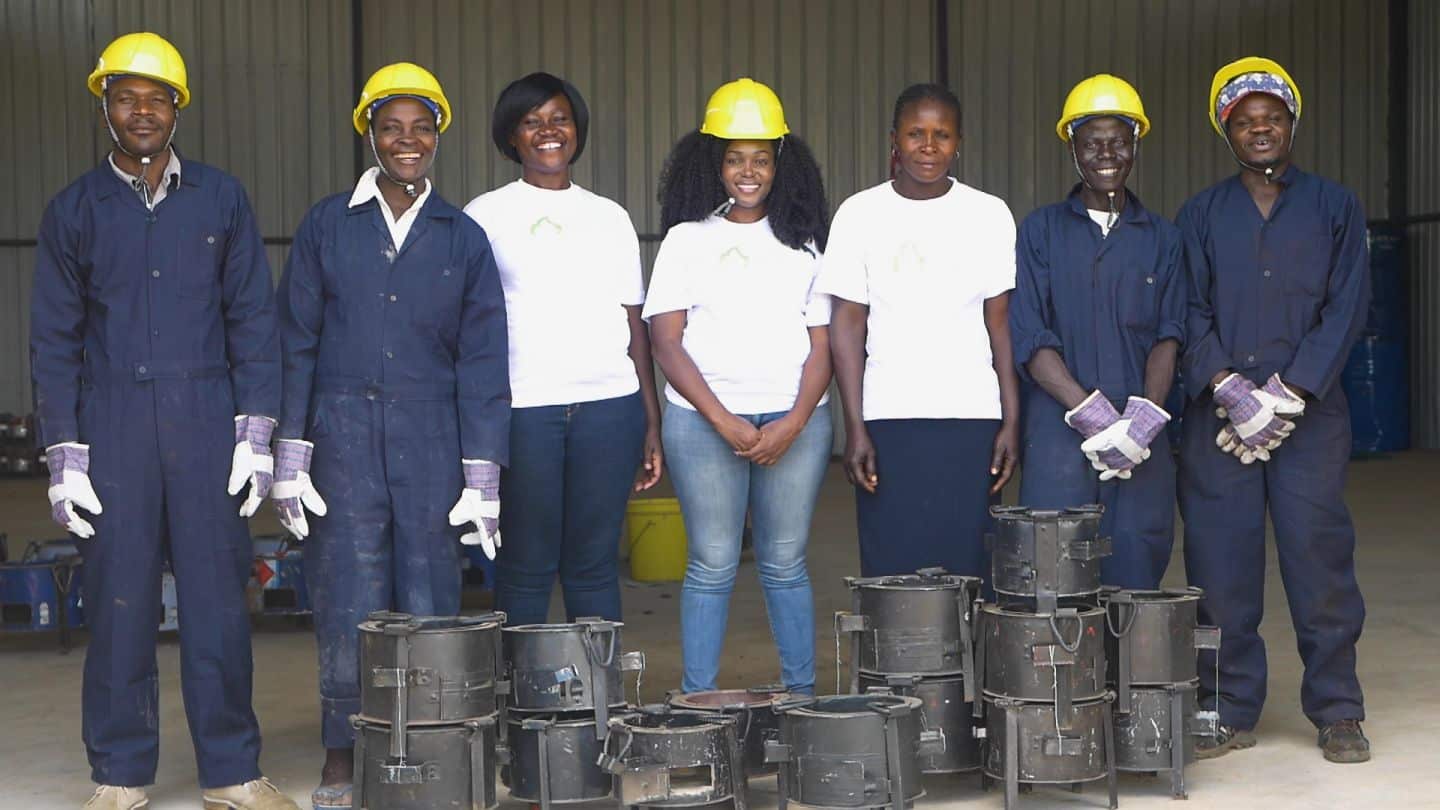Charlot Magayi is the CEO and founder of Mukuru Stoves, a social enterprise that recycles waste metal to produce clean cookstoves for low-income households. Mukuru Stoves was originally based in Nairobi, selling to urban households, but moved its operations to western Kenya to better serve those most in need. Their business model focuses on partnering with women who already have small businesses, and working with them as sales agents on a commission basis. The stoves are priced at USD $10, with the sales agents getting a 10 percent commission on each sale. Through this partnership, sales agents have increased their household incomes, further enabling them to provide for their families.
When the pandemic started, Charlot said, “We definitely had to make some changes; we couldn’t continue doing business as usual.” As such, she decreased sales targets and encouraged sales agents to temporarily leave their businesses to return home. However, Charlot also noticed that while sales decreased for two weeks, they subsequently started to rise slowly: sales agents had decided to go back to work, not only because they needed the income, but also because of an increased demand for Mukuru Stoves.
“From the evidence we gathered on why we did not suffer like other businesses in the start-up phase, we found that, since a lot of the breadwinners were forced to stay home, they were able to realize just how dire the need is for clean cookstoves in their households,” Charlot said. “They classified it as an essential product for the household during that time.”
Charlot also attributed the increased demand in cookstoves to the education materials that were circulating from the government on how people with respiratory tract infections are at a higher risk of contracting the virus. This prompted people to seek cleaner cooking solutions, and significantly increased the sales for Mukuru Stoves.
“The biggest effect [COVID-19] has had on our business is, it helped us spread awareness on the impact of household air pollution and how clean cooking can help families avoid respiratory tract infections,” said Charlot.
Having had to discontinue market demonstrations of stoves, Charlot adapted by shifting marketing methods to local radio platforms. This partnership proved to be an effective mechanism to educate consumers on the impact of household air pollution and the benefits of adopting clean cookstoves. Charlot has also adjusted factory conditions to create a safer environment, demarcating the factory into smaller sections with no more than two employees per section. In addition, trainings have been expanded to not just focus on stoves, but to also explore hygiene and safety mechanisms.







